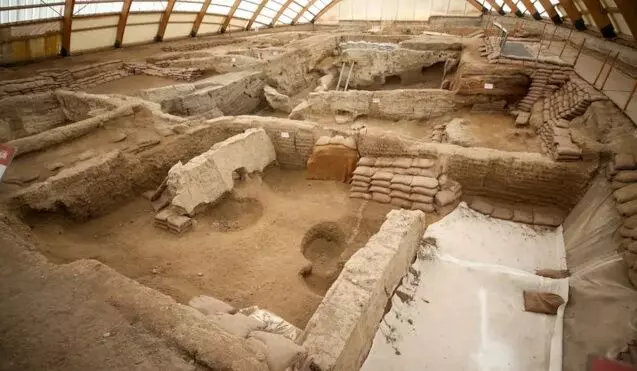
‘Round and spongy’: World's oldest bread found in Turkey
text_fieldsLondon: Archaeologists have unearthed what they called ‘the oldest bread’ dating back to 6600 BC from an archeological site, Catalhoyuk, in Southern Turkey’s Konya province.
The bread residue was discovered from an oven structure in the area of ‘Mekan 66’, which is surrounded by ancient mudbrick houses.
Turkey's Necmettin Erbakan University Science and Technology Research and Application Center (BITAM) said in a press release that the ‘round’ and ‘spongy’ remnant was identified though analysis.
Researchers found out that the ‘uncooked, fermented bread’ was 8,600-year-old, making it the oldest ever discovered, according to the report.
Archaeologist Ali Umut Turkcan, head of the Excavation Delegation and an associate professor at Anadolu University in Turkey, reportedly confirmed ‘Catalhoyuk is the oldest bread in the world.’
‘It is a smaller version of a loaf of bread. It has a finger pressed in the center, it has not been baked, but it has been fermented and has survived to the present day with the starches inside. There is no similar example of something like this to date,’ he was quoted as saying.
Salih Kavak, a biologist at Gaziantep University in Turkey, said an electron microscope Analysis ‘eliminated our doubts’ about the bread's authenticity as it revealed air spaces and identifiable starch granules in it.
A subsequent analysis revealed the sample’s chemical makeup of plant material and indicators of fermentation.
The finding suggests that the dough was created by combining flour and water and afterwards prepared in the oven and stored.
Kavak called the bread ‘an exciting discovery for Turkey and the world’.
Archaeologist Turkcan explained that the layer of clay on the structure worked as a ‘preservative for organic material such as wood and bread.
























